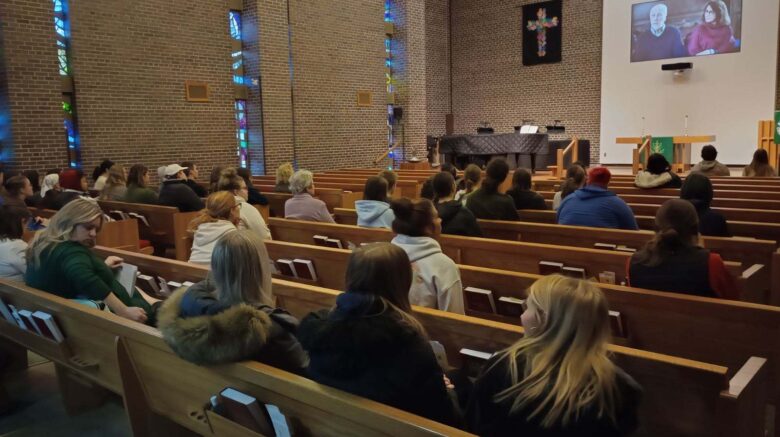By Dallas Crawford, JONAH Intern
While each of the films shown during the Social Justice Film Festival deserve a detailed article and self-reflection, I would like to shed light on a common theme I observed while watching each of the films. The festival started with the narratives of unhoused individuals in Minneapolis and ended with stories of rural life in Wisconsin, but no matter the differences between populations I learned about, each personal experience that was shared in the films focused on the importance of hope and shared community.
There is a direct impact that hope and a shared community can have on someone experiencing hardship and challenges. As many of us work in or around the human services field, we often think we have many of the solutions to the struggles of the people with whom we are working. Not only did the films illustrate that this idea is rarely the case, but they showed me that people often find stability with their own community members experiencing similar hardships.
Trying to solve a social issue without truly listening to the community that is most affected will lead to the continuation of their struggles, not the correction of the original wrongdoing. There were clear examples in the films of external groups getting involved with a community without internal communication with the individuals with lived experience and only worsening the situation.
When trying to solve social justice issues at a community level, we can often create our own perspectives and thoughts on what the actual problem is. We can forget to ask and listen to community members who are living in the problem, focusing instead on the people working above it.
The Social Justice Film Festival did not solve any of the issues some of our community members in the Chippewa Valley are currently experiencing, but it did create a space for people to actively listen to a few communities experiencing social injustice and have open discussion about how we can best serve these populations in our own neighborhoods.
My biggest takeaway from the film festival is that we need to listen to people who are asking for support before we try to give them what we think they should need. We as members of JONAH and our communities do that through relationship-building and listening to the stories of those who have been impacted.
Two hundred people viewed the films in person (8 films), ten online (one gathering to discuss 4 films).

